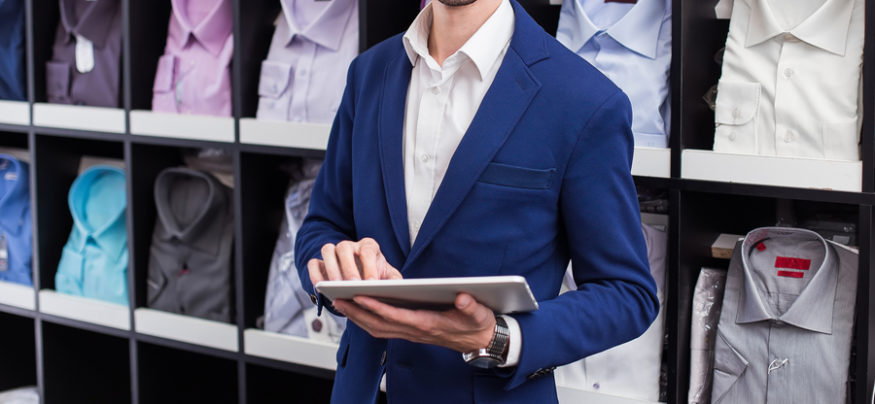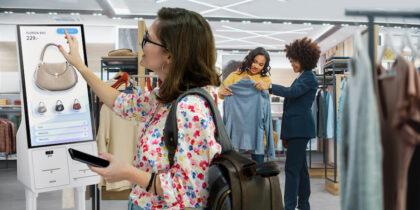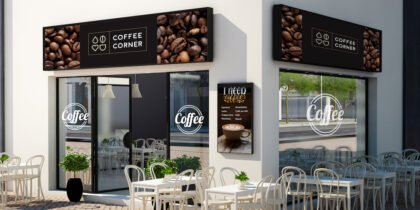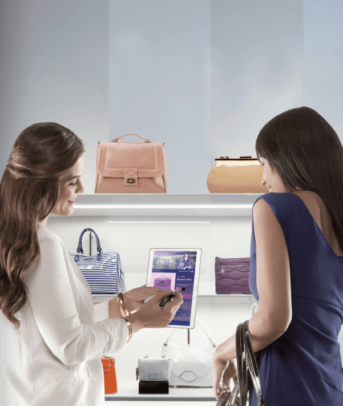Mobility 1.0 in retail put industrial devices on the store floor to help retailers complete operations functions such as barcode scanning for inventory and replenishment.
As the operating system on many of those devices, Windows CE, is sunsetting, retail is poised for Mobility 2.0. In this new era for retail, mobile devices and their ability to leverage real-time data promise to completely transform store floor activities, from inventory to assistive selling to checkout.
Those expanded capabilities require a far more user-friendly, secure and versatile operating system, leading many retailers to embrace Android. According to VDC Research, “With Microsoft officially pulling the plug on its mobile efforts, the path forward for Android to become the de facto OS for rugged handheld computers seems clear.”
But simply choosing Android is not enough. Retailers aren’t just selecting a more modern operating system to replace Windows CE for their stores. They are adopting a platform, a partner and an ecosystem to enable digital transformation in stores. That means fully vetting providers, devices and their approach to Android to ensure they offer the manageability, security and flexibility to meet the high-stakes demands of next-gen retail.
A New Mobile OS for a New Kind of Retail
Windows CE became a popular choice for retail store operations because it enabled mobile devices to be purpose-built for specific tasks. Firmware could be loaded directly onto chipsets, so device functionality was fixed, with only occasional updates. That mitigated risk, but also meant associates needed to be trained to use CE devices, because they needed to use cryptic interfaces and inputs.
Transform Retail Associate Performance
Get your free guide to empowering retail associates with mobile devices and data. Download Now
But in Mobility 2.0, mobile devices will have far more use cases than just scanning inventory. As retailers gain access to more and more real-time data, from consumer details to rich media about products to inventory locations across the enterprise, these devices empower store associates to deliver a much more engaging customer experience. Associates can use mobile devices to identify consumers and personalize their store experience while they’re still shopping, leading them to purchases that quickly meet their needs. That’s the sort of efficient, pleasurable store visit that keeps customers coming back.
When not accessing data to help customers, associates will use those same devices to scan inventory, access training materials, and pick orders for click and collect and ship-from-store. Undoubtedly, additional uses will emerge as retailers lean into Mobility 2.0.
That means more mobile devices out on the floor, serving more uses and remaining in use from opening to closing.
Getting the Right Android
A dynamic set of needs requires a range of solutions that live up to the job. So retailers choose a provider that not only offers retail-ready devices that run Android, but surrounds those devices with strong and capable tools that maximize their functionality and security. Key features to look for include:
- Easy to Use. One strong benefit of Android is its familiarity among associates. IDC forecasts Android will hold 85.2 percent of the worldwide smartphone market in 2019. That makes training fast and intuitive, which is critical in an industry with turnover rates approaching 2.5 percent every year. When associates feel empowered with good tools, they’re more satisfied with their jobs and deliver better service.
- Easy to Rollout. With some major retail brands eyeing one-to-one use of mobile devices across the store workforce, retailers will be implementing a large fleet of devices. Integrating customized devices into the store must be a seamless process. Samsung’s Knox IT solutions leverage the Knox platform built into every Samsung mobile device to make it easy to configure and enroll devices.
- Easy to Support. Retailers need platforms that are easy to support and always up to date. By standardizing on a specific Android platform like Samsung Knox, IT can leverage tools such as enterprise mobility management (EMM) and its management console that make it easy to manage profiles and policies and push them out instantly to the entire fleet, automatically. Then, Samsung’s Enterprise FOTA (E-FOTA) enables administrators to ensure the OS version is consistent and current, simplifying support. Out-of-date operating systems make it difficult to enable optimal use of the mobile fleet.
- Secure. With great access to data comes great responsibility. Retailers owe it to their customers to protect their data with robust, state-of-the-art security, while also ensuring no one can sneak onto their network via endpoint devices. Knox IT solutions layer on top of the built-in Knox security features to deliver government-certified data encryption, advanced virtual private network (VPN) and powerful tools to manage and monitor corporate devices and data traffic usage.
- Enterprise-Friendly. Transforming the store experience through mobility is a significant undertaking. To maximize the opportunity, retailers need device providers who understand the needs of the enterprise and deliver products, tools and a partner ecosystem designed to support their needs. Samsung’s extensive developer tools and partner community allow retailers to grow and adapt their mobile toolkit as quickly as customer expectations change.
Opening Up New Worlds with Android
According to RSR Research, “Retailers’ biggest opportunity comes from using technology to empower store employees with technology,” which will enable them to infuse the in-store experience with digital capabilities that make it more entertaining, efficient and convenient.
Mobile devices in the hands of store associates are a key part of that strategy, making the choice of devices, including the operating system that runs on them, a critical decision point. To maximize the impact of associate mobile devices, retailers must ensure the partners and devices they choose offer the manageability, security, flexibility and enterprise-friendly environment they need to deliver on the promise of Mobile 2.0 in retail.
To schedule a discussion of retail technology with Samsung at NRF, please provide your contact information.








